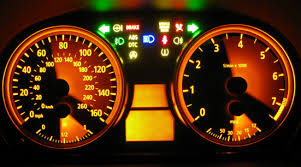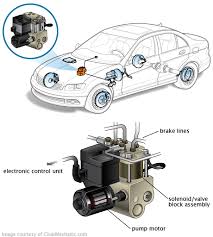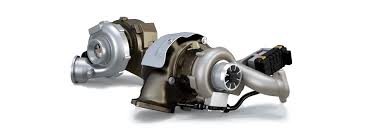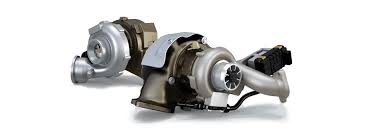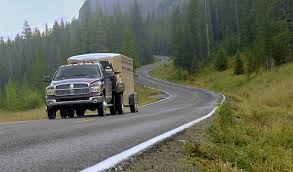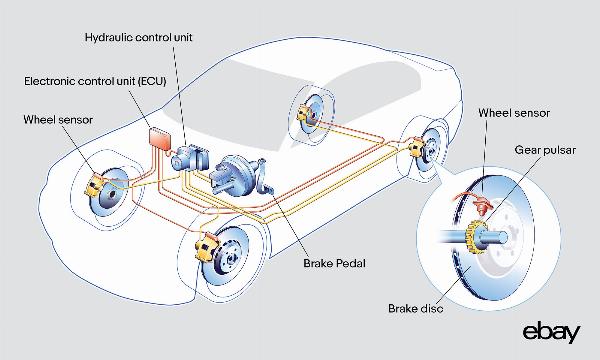 Local SEO Boost – Put Your Business on the Local Map!
Local SEO Boost – Put Your Business on the Local Map!
Navigating the 2017-2018 Ram 2500/3500 ABS Defect: A Guide for Owners
Written by Sinspeed » Updated on: June 17th, 2025

Improving the safety of vehicles is a never-ending task for the automotive industry, and one of the crucial components is continuously enhancing the anti-lock braking system (ABS). By preventing the wheels from locking up, ABS helps minimize the effect of emergency braking. But a flaw in the ABS system of Ram 2500 and 3500, which are the 2017-18 models from the Ram pickup truck, has caused a real safety concern. Thousands of owners have complained to the manufacturer and safety advocates have also called on them to take appropriate action on this matter. This article explores what is going on, its implications, and what steps can be taken by affected owners to solve the problem.
The Role of ABS in Vehicle Safety
The ABS is an essential part of all modern vehicles, most importantly for trucks like the Ram 2500 and 3500. Prohibiting a wheel lockup while braking, ABS provides the driver steering control and, consequently, reduces the possibility of skidding and an accident. This is particularly vital in bad weather or emergency stops where control of the vehicle is essential.
Identifying ABS Defects
There were complaints from owners of the 2500 and 3500 model years 2017-2018, according to the NHTSA, about the following symptoms: People who spot these symptoms should contact the service immediately, so that no collision happens, and damage is prevented.
Dashboard Warning Light: When the ABS warning light illuminates on the dashboard, it is the most obvious sign that the system is not functioning properly.
Shifting or Spongy Brake Pedal: When applied, the brake Pedal feels spongy or the car vibrates, pulsates, is slow to respond or takes more force to apply, the ABS may be malfunctioning.
Increased Stopping Distances: An increase in pedal pressure as the vehicle approaches its stopping point, with a delay before the brakes actually begin to operate. This indicates a serious ABS failure.
Screeching Sounds: During braking, abnormal sounds such as grinding or clunking may be heard as the ABS works.
The Dangers of ABS Malfunctions
A faulty ABS carries with it some serious risks, since it affects a car’s stopping performance and, by inference, its overall safety. Specific threats include:
Loss of Steering Control: If ABS fails in an emergency brake, it might allow the wheels to lock up, making the car uncontrollable, and thus risking an accident.
Stopping Distance: Stopping distance is increased when ABS is not functioning, and it could take much longer to stop, especially on slippery or uneven surfaces.
Risk of Skidding: ABS functions by modulating brake pressure to prevent skidding. When it fails, risk of skidding – especially potential skidding when needing to screech to a stop quickly – increases.
Legal and Financial Implications
The discovery of the ABS defect in the 2017-2018 Ram 2500 and 3500 has led to multiple class action lawsuits filed against the manufacturer for false and deceptive advertising, fraud, and misrepresentation. The complaint alleges that the manufacturer ‘knew, or should have known that the subject vehicles had a defect that posed a risk of injury or death to consumers’, but failed to adequately warn or protect consumers. If you own an affected vehicle, here are some steps that you can take.
NHTSA Recalls: From time to time, stop by the NHTSA website or contact your dealership to see if your vehicle has been recalled for any problem related to the ABS.
Report Problems: If you’re feeling any of the symptoms of ABS failure, make sure you report them to your dealership and document them in their records, as this information will likely be needed for legal action against the manufacturer.
Consider Legal Action: You might be able to join a class action lawsuit and get reimbursed for vehicle repairs, loss of value, and other expenses.
Practical Steps for Affected Owners
Safety starts with two things that will help you in the event of a recall: here’s what you can do for yourself. 1) Keep checking for recalls. This one is obvious, yet some people tend to overlook it: if you own a vehicle that is subject to a safety recall, have the defect fixed immediately. Keep visiting the NHTSA public website to check for new recalls or subscribe to a reporter at www.safercar.gov/Safety+Issues/Recall+Look-Up. If the Jacobsons have relatives in California, that’s especially important because the state has an enhanced notification system. 2) Keep warning stickers intact While people – for whatever reason – sometimes decide not to act on their recall notices, all too many forge ahead even when their vehicles have been informed in writing by their makers to not do so. Just look at where your warning stickers are located before and after repairs on your car or truck. If a recall ever occurs, the stickers will remain in plain view, prompting you to get it fixed. So, they are there for a reason.
Regular Check-ups: Set up regular check-ups with a mechanic who is ABS-certified to inspect both your ABS and braking system so any warning signs can be caught before they become serious problems.
Don’t delay repairs: If the ABS anti-lock braking system warning light comes on or you notice a problem with braking, get it investigated by a mechanic right away.
Follow up: Keep abreast of any new information about the ABS defect, such as recalls, lawsuits or repair campaigns by the manufacturer.
Conclusion
The poor ABS design in the 2017-2018 Ram 2500 and 3500 trucks is a serious safety issue. If you know what to look for and recognise the risk, taking steps now can help keep you and others around you safer. Calling a hotline and being an active part of the class-action lawsuit are also ways owner-drivers can help to keep manufacturers accountable to quickly resolve safety issues such as this one.
The issue of vehicle safety is a joint one. However, you remain the first person who can handle the problem and act accordingly to make sure your vehicle runs safely and properly.
Note: IndiBlogHub features both user-submitted and editorial content. We do not verify third-party contributions. Read our Disclaimer and Privacy Policyfor details.
Men's Journal is a rugged and refined lifestyle adventure travel, food and drink Get in touch [email protected] to find out how we can help you reach everyday, affluent, and adventure seeking consumers on Men's Journal
Copyright © 2019-2025 IndiBlogHub.com. All rights reserved. Hosted on DigitalOcean for fast, reliable performance.


